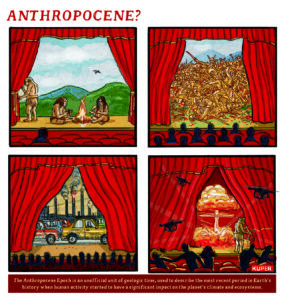Human-Induced Climate Change Caused 2003 Heat Wave That Killed Hundreds of Europeans, Study Finds
Scientists say their groundbreaking report is the first to link an estimate of human activity to an estimate of mortality for the 2003 heat wave—and in fact for any heat wave. France’s Loire River at Nevers in the summer of 2003. (Cypris via Wikimedia Commons)
France’s Loire River at Nevers in the summer of 2003. (Cypris via Wikimedia Commons)
By Alex Kirby / Climate News Network
France’s Loire River at Nevers in the summer of 2003. (Cypris via Wikimedia Commons)
This piece first appeared at Climate News Network.
LONDON — British researchers say climate change was responsible for the deaths of more than 60 people in London in 2003, and over 500 in Paris. In a rare instance of direct attribution of human mortality to warming temperatures, they say that year’s European heatwave raised the risk of heat-related death by 20% in London, and in Paris by 70%.
Using both climate and mortality data, they estimate that 315 deaths in Greater London and 735 in central Paris can be strongly linked to the 2003 heatwave, which broke records across Europe, with about 64 (± 3) deaths attributable to climate change from human causes in London and 506 (± 51) in Paris.
They say their study is the first to link an estimate of human activity to an estimate of mortality for the 2003 heat wave — and in fact for any heat wave. With potentially lethal heatwaves predicted to become likelier across more of the globe unless greenhouse emissions are soon cut drastically, the research is likely to be relevant far beyond western Europe.
The team, led by scientists from the University of Oxford and Public Health England, has reported its latest findings in the journal Environmental Research Letters.
It compiled the data it used with substantial help from private computer users. The large number of simulations the team was able to capture revealed the statistical distribution of extreme temperature events in great detail, but the researchers say they could not have completed their task without the help of the public.
“The total computing time to run all the simulations would be around 250 years if you had to perform the calculations on a single home PC.”
“Our analysis is based on a citizen science activity, where individuals donate spare computing power to perform simulations as a screensaver, returning projections to the University of Oxford once the climate model has finished running,” said Daniel Mitchell, of Oxford’s Environmental Change Institute.
“The total computing time to run all the simulations would be around 250 years if you had to perform the calculations on a single home PC.”
Quantifying the impact of changes in climate on mortality should make possible more accurate emergency plans for extreme weather and also build a stronger case for longer-term action.
Clare Heaviside of Public Health England’s Centre for Radiation, Chemical and Environmental Hazards said: “Deaths are usually recorded as being due to a specific cause such as cardiovascular disease or cancer, which makes it difficult to make a direct connection between deaths recorded during a heatwave and exposure to heat specifically.
“So in order to calculate the number of deaths which can be attributed to the heatwave, we use a statistical relationship which relates increases in temperature above a certain threshold, to an increase in the number of deaths typically expected on a particular day of the year.”
Separate calculations
The temperature-mortality relationship depends on many factors. To improve the quality of the analysis, data is calculated separately for each region or city. The next step is to establish the coefficient relating high temperature and increased mortality and apply this to a period of hot weather to estimate how many deaths during this timescale can be attributed to heat.
To establish the proportion of these deaths that are due to human factors such as raised atmospheric greenhouse gas (GHG) concentrations, the scientists run climate models for the baseline year according to different scenarios reflecting “actual” and “natural” conditions.
“Under the simulations with pre-industrial levels of GHGs, the probabilities of extreme temperatures are lower,” Professor Heaviside said. “To determine the influence of changed atmospheric gas composition on heat-related mortality, we combine the climate projections with our statistical mortality relationship.”
The group can now use the data to extend its analysis to include other cities, and also to examine human factors in more detail.
“In the future, we may investigate the partitioning of emissions between different sectors — for example, transport, industry and others, to see how the various sectors contribute to the effects of climate change,” Professor Heaviside said.
Alex Kirby is a former BBC journalist and environment correspondent. He now works with universities, charities and international agencies to improve their media skills, and with journalists in the developing world keen to specialise in environmental reporting.
Your support matters…Independent journalism is under threat and overshadowed by heavily funded mainstream media.
You can help level the playing field. Become a member.
Your tax-deductible contribution keeps us digging beneath the headlines to give you thought-provoking, investigative reporting and analysis that unearths what's really happening- without compromise.
Give today to support our courageous, independent journalists.






You need to be a supporter to comment.
There are currently no responses to this article.
Be the first to respond.